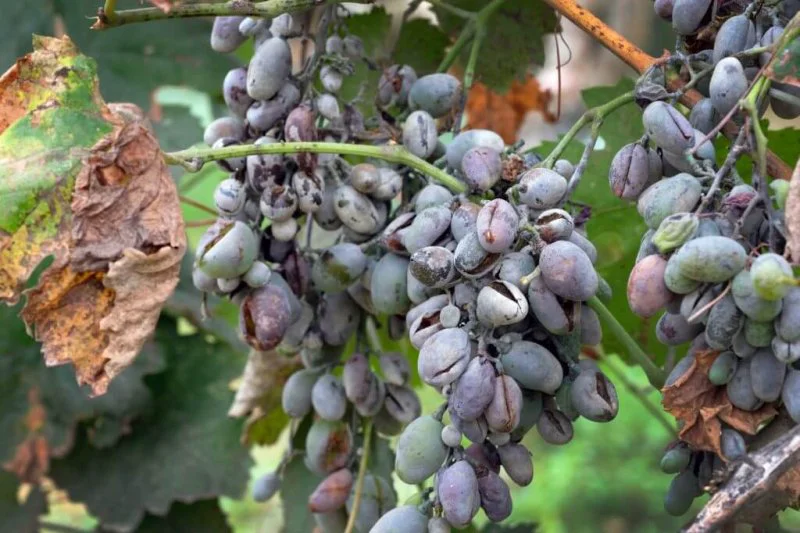Viewpoint: By rejecting biotechnology and synthetic pesticides, France is ill prepared to address mildew and organic copper pollution crisis
Viewpoint: By rejecting biotechnology and synthetic pesticides, France is ill prepared to address mildew and organic copper pollution crisis


2021 was a difficult year for the production of French farmers: tomatoes and potatoes were devastated by various pests. The burden of the damage, however, fell above all on organic crops; which suggests the fragility of the thesis of those who would like all agriculture to be converted to this method, evidently less able to guarantee the safety of the harvest.
There is an aggravating circumstance: the levels of copper, the most widely used pesticide because among the few products authorized in the organic field, are on a dangerous rise, both in the soils and – listen, listen – in the urine of children who eat organic products (at least in France).
To find out more, I asked Donatello Sandroni, who is an expert in agricultural ecotoxicology.
What he wrote to me below:
In agriculture, every year is a story unto itself: weather and parasitic attacks are in fact independent of the planning skills of producers, who have to face the changing environmental conditions as best they can. And it is precisely on ‘as best they can’ that the concept must be deepened. In this sense, organic farming has self-imposed anachronistic vetoes both in the use of synthetic fertilizers and pesticides, and in the adoption of biotechnologies. The result is that everything is fine in normal times, but when the vintages take a bad turn, there is trouble.
[Editor’s note: This article was originally published in Italian and has been translated and edited for clarity.]
This is an excerpt. Read the original post here.

 | Videos | More... |

Video: Nuclear energy will destroy us? Global warming is an existential threat? Chemicals are massacring bees? Donate to the Green Industrial Complex!
 | Bees & Pollinators | More... |

GLP podcast: Science journalism is a mess. Here’s how to fix it

Mosquito massacre: Can we safely tackle malaria with a CRISPR gene drive?

Are we facing an ‘Insect Apocalypse’ caused by ‘intensive, industrial’ farming and agricultural chemicals? The media say yes; Science says ‘no’
 | Infographics | More... |

Infographic: Global regulatory and health research agencies on whether glyphosate causes cancer
 | GMO FAQs | More... |

Why is there controversy over GMO foods but not GMO drugs?

How are GMOs labeled around the world?

How does genetic engineering differ from conventional breeding?
 | GLP Profiles | More... |

Alex Jones: Right-wing conspiracy theorist stokes fear of GMOs, pesticides to sell ‘health supplements’




 Viewpoint — Fact checking MAHA mythmakers: How wellness influencers and RFK, Jr. undermine American science and health
Viewpoint — Fact checking MAHA mythmakers: How wellness influencers and RFK, Jr. undermine American science and health Viewpoint: Video — Big Solar is gobbling up productive agricultural land and hurting farmers yet providing little energy or sustainabilty gains
Viewpoint: Video — Big Solar is gobbling up productive agricultural land and hurting farmers yet providing little energy or sustainabilty gains Trust issues: What happens when therapists use ChatGPT?
Trust issues: What happens when therapists use ChatGPT? Fighting deforestation with CO2: Biotechnology breakthrough creates sustainable palm oil alternative for cosmetics
Fighting deforestation with CO2: Biotechnology breakthrough creates sustainable palm oil alternative for cosmetics California, Washington, Oregon forge immunization alliance to safeguard vaccine access against federal undermining
California, Washington, Oregon forge immunization alliance to safeguard vaccine access against federal undermining 30-year-old tomato line shows genetic resistance to devastating virus
30-year-old tomato line shows genetic resistance to devastating virus The free-range chicken dilemma: Better for birds, but with substantial costs
The free-range chicken dilemma: Better for birds, but with substantial costs ‘You have to treat the brain first’: Rethinking chronic pain with Sanjay Gupta
‘You have to treat the brain first’: Rethinking chronic pain with Sanjay Gupta
